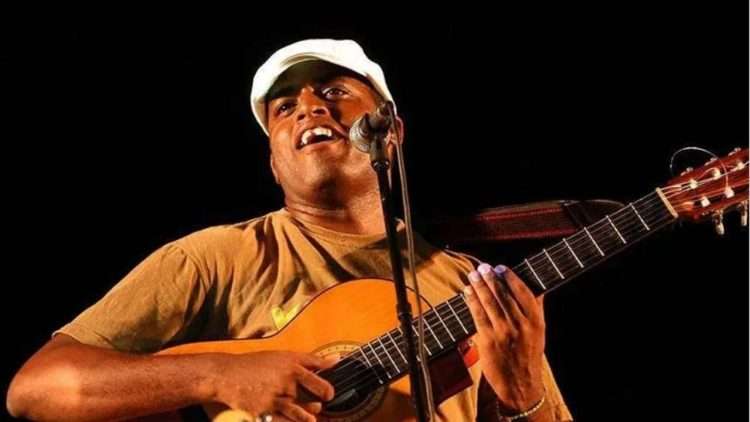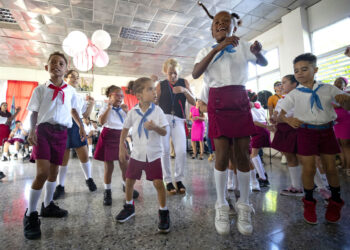Cuban singer-songwriter Fernando Bécquer, who had been accused by a group of women of having sexually abused them, was found guilty last Wednesday by a Cuban court.
The trial took place on Tuesday in the Municipal Court of Centro Habana, lasted around 12 hours and around 30 women testified, according to unofficial media and online publications.
After the hearing, the verdict was announced this Wednesday morning and the defendant was found guilty “for the crime of lascivious abuse,” according to what was reported on the Twitter profile of the official Federation of Cuban Women (FMC).
The organization added that “according to due process, both parties (defense and prosecution) have the right to a second instance.”
Declarado Culpable Fernando Bequer, por el delito de abuso lascivo. Según el debido proceso, ambas partes tienen el derecho a una segunda instancia.#ToleranciaCero#NoALaViolenciaDeGénero#JuntasPorLaNoViolenciaDeGénero#EnCubaNoHayImpunidad@TeresaBoue @OsmaydaFMC
— FMC de Cuba (@FMC_Cuba) October 19, 2022
For its part, the magazine Muchacha, a periodic publication of La Mujer publishers, belonging to the FMC, confirmed that Bécquer was found guilty and added that he received “a subsidized 5-year sentence with limited freedom.”
The media considered that “the resolution of the Municipal Court of Centro Habana in accordance with the current Penal Code (Law 62 of 1987), is an act of justice with the plaintiffs” and pointed out that “the process experienced leaves a fundamental message to Cuban society: gender-based violence cannot go unpunished.”
In addition, it expressed solidarity with the plaintiffs and thanked them for their courage, “as well as the people and organizations that accompanied them,” and assured that the FMC “is willing to continue accompanying the plaintiffs who request it.”
The first public complaints against Bécquer were made known in December of last year, after five testimonies were published in this regard in the digital magazine El Estornudo. These complaints would be followed by others ― some of which dated back up to two decades ― in the midst of a growing debate on social networks, where there were also those who came out in defense of the musician.
Writer Elaine Vilar Madruga was the first to file a report before the law and she was followed by more victims. Now, after the trial was finally carried out and the sentence was known, the plaintiffs and many other people celebrated that the defendant was found guilty of the abuses he was accused of.
However, many have also considered the sentence passed in the first instance as insufficient and, in particular, have regretted that the singer-songwriter has not been sentenced to imprisonment, although they recognize that said sentence sets an important precedent on the island.
According to the provisions of the Penal Code still in force, the sanction of limitation of freedom implies that the sanctioned person cannot change his residence without authorization from the court, he is obliged to appear before it as many times as he is called to do so and must observe an attitude of “strict compliance” with the laws and respect for the rules of coexistence, among other aspects.
This sanction, according to what is still regulated, “is carried out under the supervision and surveillance of the mass and social organizations of the place of residence of the sanctioned person,” and the police, after receiving information from the court, are in charge of coordinating the “appropriate forms” for the execution of what was judicially dictated.
“If the sanctioned person refuses to comply with the obligations inherent to the sanction of limitation of freedom or, during its execution, fails to comply with them or hinders their compliance, or is sanctioned to deprivation of freedom for a new crime, the court will order that he comply with what remains of the sanction of deprivation of freedom originally set, after deducting from it the time served,” the Penal Code adds.
Said Code will be replaced in weeks by a new one, already approved by the National Assembly and not exempt from controversy due to some of its contents, which will enter into force in December. In it, according to the magazine Muchacha, “the protection of victims is increased, criminal figures are updated and the sanction for the various forms of gender-based violence is increased.”










